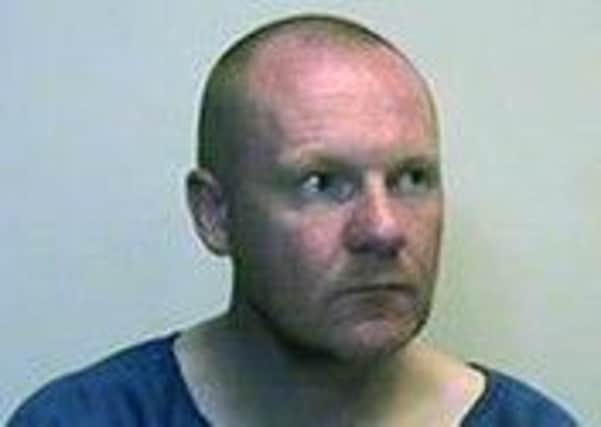Corstorphine Hill killer seeks move to prison


James Dunleavy, 40, believes he is fit to leave Carstairs and also claims he could not find a good chess opponent at the high-security psychiatric hospital.
A trial heard harrowing evidence that Philomena Dunleavy, 66, from Dublin, may still have been alive when her 40-year-old son began to hack off her legs with a knife and saw in his Edinburgh flat.
Advertisement
Hide AdAdvertisement
Hide AdMrs Dunleavy’s remains were found weeks later, buried in a shallow grave on Edinburgh’s Corstorphine Hill.
Lord Jones today set a date for next month in which he will decide whether Dunleavy should leave Carstairs in Lanarkshire for life in the Scottish prison system.
He made the decision at a hearing at the High Court in Edinburgh in which he was told that medics needed more time to assess the state of Dunleavy’s mental health.
They may decide that his psychiatric condition is of such a complicated nature that he could never be transferred to a conventional jail.
Labourer Dunleavy, who worked on Edinburgh’s trams project, originally denied murder and attempting to defeat the ends of justice by burying her to try to cover up the crime at his trial earlier this year.
A jury at the High Court in Edinburgh convicted him, by majority, of a reduced charge of culpable homicide. They also found him guilty of the attempted cover-up between April and July last year.
Mrs Dunleavy, a mother-of-five, had left her Dublin home in early April last year and arrived in Scotland on April 24 to visit her eldest son.
Prosecutors alleged that days later she was dead, butchered in Dunleavy’s flat in Balgreen Road, Edinburgh.
Advertisement
Hide AdAdvertisement
Hide AdMedics could not tell how she died. Injuries to her head, ribs and damage to small bones in her neck, often linked to strangulation, could have been sustained after her death.
Prosecution lawyer Alex Prentie QC, prosecuting, warned the jury that “loose ends” and unanswered questions would remain.
It was more than a month before Mrs Dunleavy’s remains were unearthed, just a few minutes walk away from her son’s address.
A large suitcase was missing from the flat and a spade with a broken shaft was found in the back green.
Police were at a loss trying to identify the body until CT scans of Mrs Dunleavy’s skull, combined with computer technology, enabled Dundee University’s craniofacial expert Dr Caroline Wilkinson to produce a likeness of the dead woman.
Three psychiatrists told the trial that Dunleavy clearly had problems, although it was too early to say exactly what it was. Paranoid schizophrenia was suggested as a possibility.
Dunleavy, giving evidence, insisted the doctors were wrong. “I think the gravity of the crime I am accused of may have coloured their perception. They are entitled to their opinion.”
By that time, Dunleavy had already been sent to the State Hospital, Carstairs.
Advertisement
Hide AdAdvertisement
Hide AdAfter the jury verdicts, judge Lord Jones ordered he should stay there while psychiatrists continued to assess his condition.
Dunleavy returned to court earlier this year for the judge to decide the next move, which could be an indefinite stay in the State Hospital.
At that hearing, defence QC Gordon Jackson said: “He doesn’t want to go to Carstairs. He wants a prison sentence.”
The lawyer said medical reports had been prepared for the court but he felt it was his duty to have an independent person look at their recommendations.
But when the case called today, Lord Jones was told that a doctor tasked with examining Dunleavy hadn’t completed their report.
Lord Jones then continued the hearing to October 16, 2014. The hearing will take place at the High Court in Edinburgh.